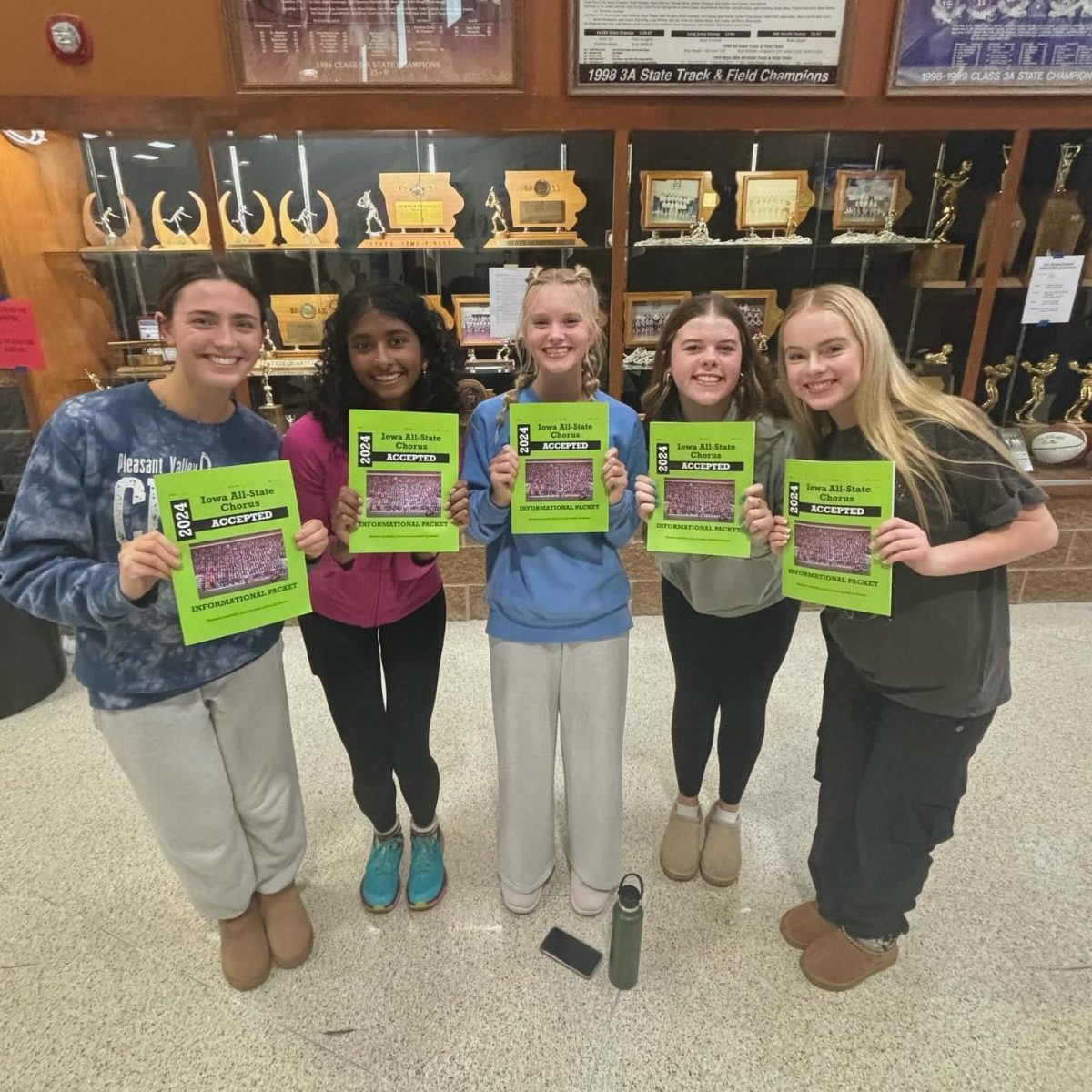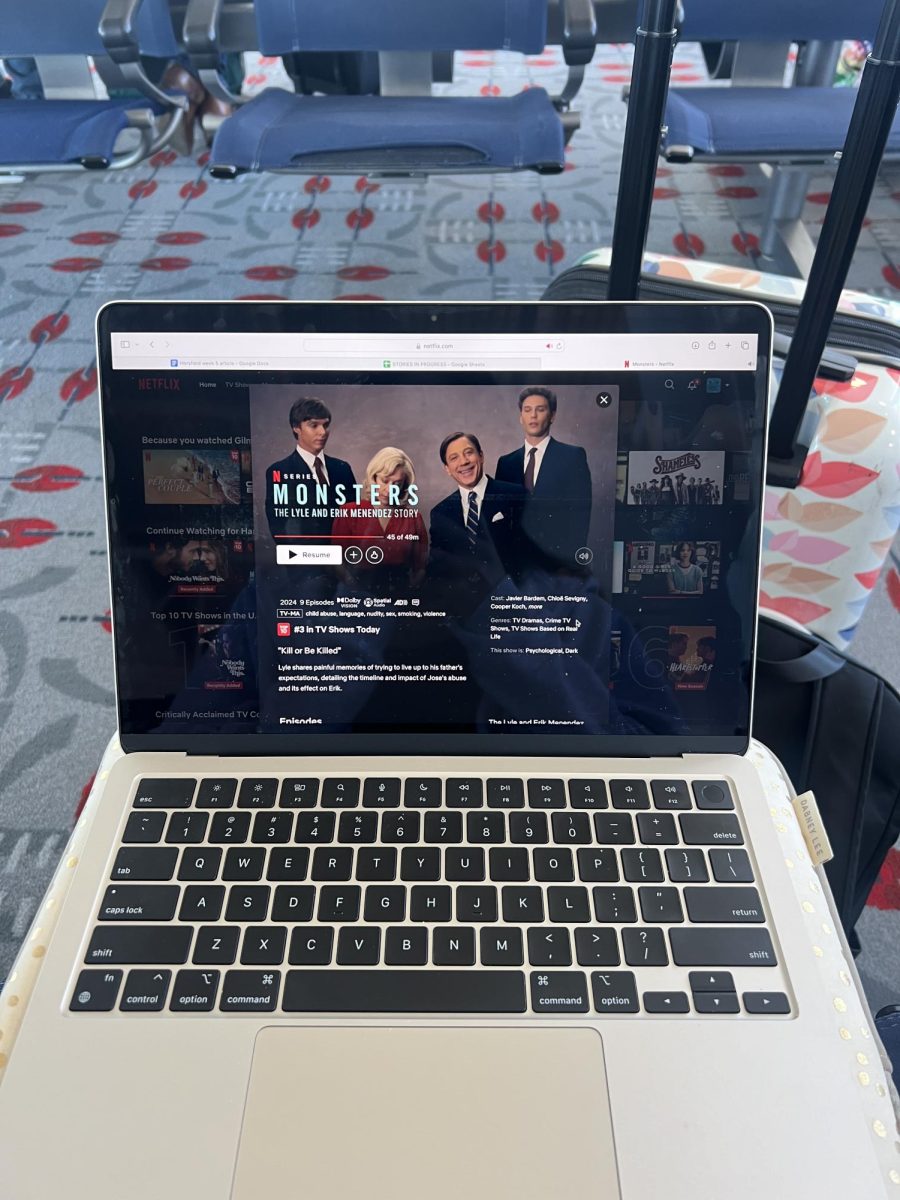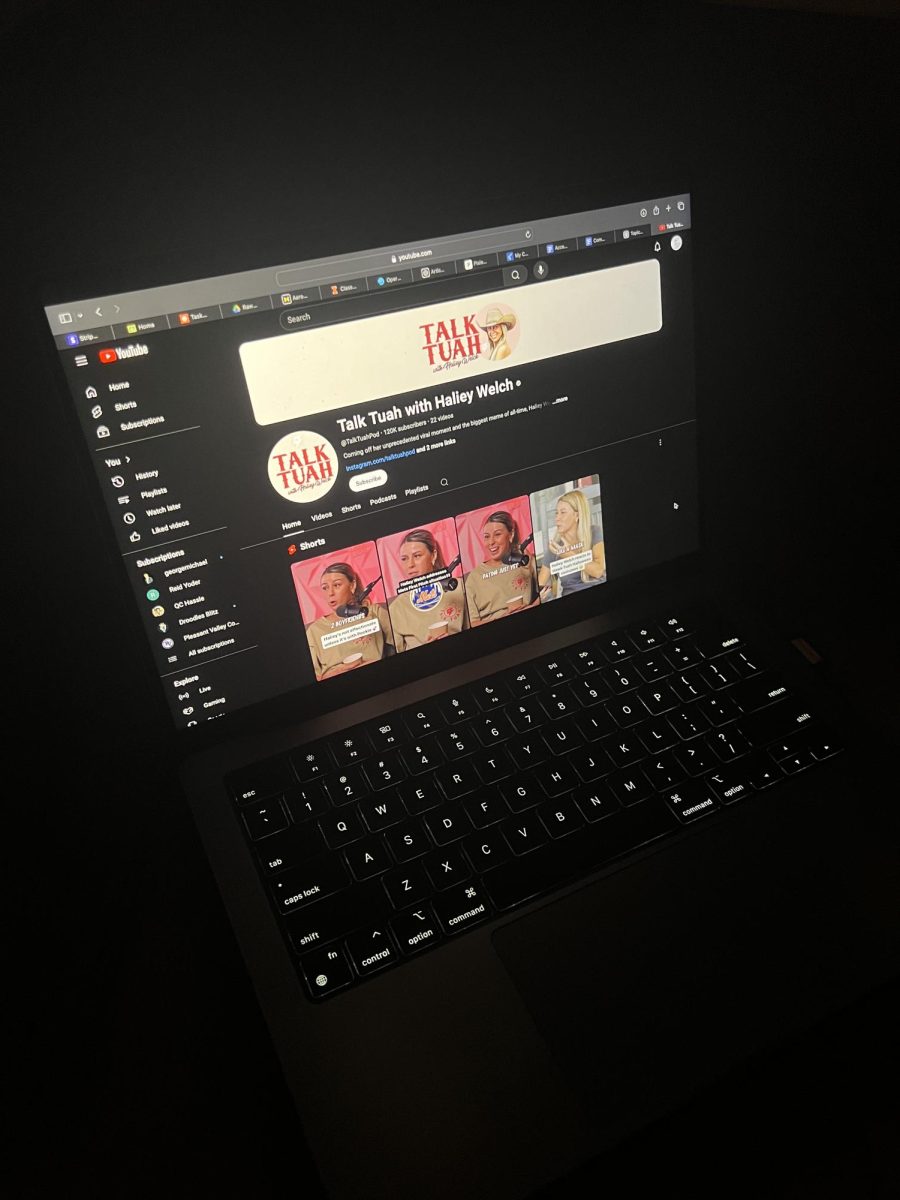A high caliber of musicianship is required to be accepted into any of the three All-State ensembles, and the selection processes on audition day have a crucial impact on the results. Unfortunately, the 2024 auditions presented various inconsistencies in judging.
The IHSMA All-State Music Festival auditions took place on Saturday, Oct. 26 in six regions across Iowa. Over 4,000 students auditioned for various ensembles, including the chorus, band or orchestra. Ultimately, 1,091 elite musicians were selected as All-State members. Those who received this honor will gather in November in Ames, Iowa to put together a memorable and prestigious performance.
The power of one judge
All-State has existed for 78 years, making it a beloved tradition many musicians strive to be a part of. Even though these ensembles hold such importance, one judge controls the fate of a musician’s acceptance. Students spend months perfecting their technique, musicianship, repertoire and performance, but the audition comes down to a mere seven minutes in front of one judge.
Music is an art form, and is therefore subject to opinion. IHSMA gathers experienced and knowledgeable musicians and music educators to judge the All-State auditions. However, each is still entitled to their individual preferences.
For chorus auditions in particular, the vocalists are divided into five centers, each with a different judge. Even though there are given rubrics with distinguished criteria, chorus auditioners face different perspectives from each judge in the separate centers. Due to the subjectiveness of music, each auditor may have specific qualities they are looking for or may favor certain voice parts over others.
Putting too much power into one judge can compromise results.
In order to balance the ballot and ensure fair judgment, the All-State selection process should consider hosting two or three judges per audition center in the future. While it may be difficult to find additional qualified judges, a judging panel would be better suited to make the significant decisions of who earns a spot in the All-State ensembles.
Audition system delays
Each auditor is responsible for judging one center, and all musicians are assigned their audition centers within the hosting schools across the state. In recent years, IHSMA has used an online system to organize audition locations and monitor scores. However, this technology has not always been reliable.
The assigned centers at Washington High School experienced unexpected room changes in the morning, so it took time to reset the system and proceed with auditions. Consequently, some results were delayed by several hours. For an already lengthy day, the timing difficulties heightened anticipation and interfered with preparation time.
Students were originally assigned a warm-up time 14 minutes prior to their scheduled audition time as IHSMA works to ensure a smooth schedule and provide efficient preparation for auditioners.
But with the technical delays, students were unsure of how soon to arrive at their audition centers. Some centers got back on schedule while others remained nearly an hour behind. This especially impacted the musicians because they need adequate time to prepare their voices or instruments, but too long or they will be overworked and exhausted.
Staying on schedule is crucial for musicians to balance their warm-up periods.
While band and orchestra results were posted throughout the day as instrument sections concluded auditions, chorus results were not posted until the very end of the day. Pleasant Valley students auditioned at the Washington High School center, and their chorus results were posted between 6:00-7:00 p.m.
Other audition locations throughout the state remained on time, so their All-State results were posted much earlier than the Washington region’s. “I was at the Independence Center and results were posted around 4:00-5:00 p.m,” shared sophomore vocalist Matt Loomis. This timing inconsistency prolonged waiting and affected when results were received in relation to other centers.
Varying ensemble requirements
All ensembles audition on the same day and in the same building for their assigned center. But the requirements for each group are far from the same.
The band has the most demanding audition requiring students to learn all 12 major scales, two to three instrument specific etudes and 60 seconds of a self selected solo. Orchestra is similar in that they must prepare scales and a solo, but their etudes are instead five excerpts taken from the concert repertoire.
Chorus requirements are in a league of their own.
The guest director of the All-State Chorus chooses seven pieces of music which are announced in July and will be used for auditions. Auditioners can audition in groups of up to four singers and must prepare all songs, cover to cover. The audition consists of five to six cuts from the given materials.
At 5 a.m. on audition day, two chosen excerpts and cuts of all etudes and pieces are released for the respective ensembles.
While band and orchestra have scales to prepare, the choir auditions have no specific technical elements. It can be difficult to judge a singer’s full abilities based on the performed music alone. Some singers may sound incredible based on their audition, but, away from the perfected cuts, could lack musical intelligence.
Because the choir music is chosen by the guest director, their preferences might not provide variety in the music nor opportunities for each part to showcase their talent. The All-State Chorus has the most varying level of difficulty from year to year because of this, and it can be unfair to returning auditioners.
Choral director and former All-Stater Bailey Connors shared his perspective on the auditions. “The important thing to remember about All-State audition day itself is that the judge’s job is to seat a large chorus of musical singers that can sing very well in tune. With that in mind, the current process idealizes intonation above all else,” Connors said.
Any change to this process would be extremely difficult to implement.
However, additional requirements such as a solo, agility exercises, pitch memory tests or even sight reading could give a better insight to the musical integrity auditioners. The All-State ensembles are prestigious groups that should require musical excellence in all aspects of the art, not just performance, to be selected.
Recall adaptations
Recalls are another component of All-State audition day that some students are required to complete. Essentially, judges choose students they want to hear again to sing or play selected repertoire.
For the band and orchestra, instrumentalists must get a recall to make the ensemble, unless it is an instrument group with few auditioners. For the chorus, vocalists can make All-State either directly in the first round or after getting recalled. The inconsistent recall processes can be confusing for musicians and increase anxiety.
In contrast to tradition, some instrumentalists who were recalled this year didn’t even have to play in their recalls. “If the judge has already determined what part you’re going to be on, you may not have to play in the recall, but those who may fall on the bridge of two parts will likely have to play again,” shared two-time All-State clarinetist Lauren Lundie. “Band recalls are not only to determine whether or not a person makes it, but they can also determine part assignments in each section.”
Each instrument section has adapted its own method of handling recalls, which has caused some frustration for auditioners and directors. More consistency within recalls would reduce the risk of surprises on audition day.
The unearthed horn rule
This year’s audition day brought several of these shocks to musicians. Among these was an uncovered rule of the French horn section, which complicated audition results.
Pleasant Valley’s senior French horn player Victoria Rice was expected to receive her third acceptance to the All-State Band and second admission to the full orchestra as a wind player. This year, however, she was told in her recall that she was only eligible to be placed in the band.
“When I found out my original goal for All-State this year (French Horn 1 in the orchestra) wasn’t even possible, it was discouraging,” Rice explained. This jarring news compelled PV’s band directors to inquire about the judges’ decisions.
They received a shocking answer: for the French horns only, the right to the French Horn 1 part in the orchestra–the most prestigious part a player can get–shifts from region to region each year.
This means that in any given year, only players from the predetermined region across the state can be selected for French Horn 1 in the orchestra, and all other centers can make it no higher than French Horn 2 or 3, despite their demonstrated abilities.
Rice, having played an incredible audition and being told she was the most proficient player of the region, deserved the orchestra French Horn 1 part. Yet, the rule prevented all players from the Washington center from making it higher than French Horn 3 in the orchestra and unfairly demoted the best players.
With a plethora of rules posing problems for auditioning musicians, the seeming spontaneity of the judging was the true upset. “The rule about French horns in the orchestra is really disappointing, but I just wish that it was more clearly stated before auditions,” Rice clarified.
Peculiar outcomes like Rice’s had occurred before, yet no rule pertaining to center rotation had been brought to the attention of directors or students.
Closing remarks
All-State audition day is a very important day for Iowa musicians, and the All-State Music Festival is a high honor. The inconsistencies of the judging and selection process complicate the validity of auditions, and solutions are necessary if IHSMA is to improve accuracy and limit issues of future auditions.












